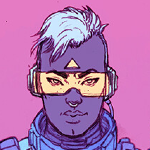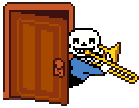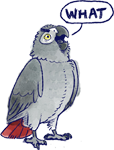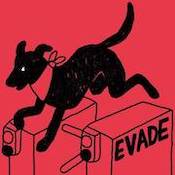|
yea
|
|
|
|

|
| # ? May 9, 2024 23:00 |
|
Al Cu Ad Solte posted:I got 94k into my sixth (!!! how the gently caress did this happen?) novel and....I hate it and don't want to write it anymore. First time this has happened. With my previous five it was a mostly straight forward experience except for y'know the imposter syndrome but this time just...ugh. I'm wondering if I should just power through and finish it, since after this next chapter it's the home stretch onto the final act (so probably another 20k) or just shelve it for now and work on something else. Finish finish finish finish.
|
|
|
|
So on the subject of finishing, I've been chugging away at a book, I'm about 35k words into it, and it turns out I'm some horrible amalgamation when it comes to plotting vs discovery. It's taken me about this long to figure out what/who the book is really about, and the 35k words I've written so far don't feel like they're at all going in the right direction. My instinct now is to start over, because I feel like a) I'll get up to that same word count relatively quickly now that I have a better sense of the story and plot, and b) what I'd write the second time around would likely take significantly less editing to be not-abjectly-terrible. At that point, starting fresh is probably the right move, yeah?
|
|
|
|
|
MockingQuantum posted:So on the subject of finishing, I've been chugging away at a book, I'm about 35k words into it, and it turns out I'm some horrible amalgamation when it comes to plotting vs discovery. It's taken me about this long to figure out what/who the book is really about, and the 35k words I've written so far don't feel like they're at all going in the right direction. finish it, learn what you hosed up, apply it to a new book. you need to figure out how to land the lane, not just get it in the air.
|
|
|
anime was right posted:finish it, learn what you hosed up, apply it to a new book. you need to figure out how to land the lane, not just get it in the air. And I definitely understand that, but I'm finding it very very hard to work on a draft that's probably less than half done and not at all near the book I actually want to write, when I know I could trash what I have and start over and be significantly more likely to finish. This isn't just a matter of wanting to rewrite what I have, it's that what I have isn't worth finishing. Is there really that much value to finishing a book that I know I'm just going to trash as soon as it's done and start over with the story I actually wanted to write immediately after? That's a genuine question, I'm not trying to be combative. I definitely understand the value of finishing for the sake of getting in the habit of finishing, but I also feel like that advice comes from a place of people trying to help new writers avoid a bunch of false starts, when I feel like I needed a false start to figure out what the hell I wanted to write in the first place.
|
|
|
|
|
I understand how you feel. But the important part here is to develop self-discipline. You can't start over on a work every time you hate it, and sooner or later we all hate what we write. Also if you start over now it will take even longer to get to the end. Think of the time you've already invested and ask yourself if it's worth it to start over. That's not to say you can't start over or that it's a bad idea but there's cost/benefit analysis that you have to do.
|
|
|
HIJK posted:I understand how you feel. But the important part here is to develop self-discipline. You can't start over on a work every time you hate it, and sooner or later we all hate what we write. For sure, I follow what you're saying. This isn't so much about developing self-discipline, for me, as much as it's been about learning how to even structure a story well and develop characters that are worth writing about. I don't hate what I've written so far, I'm just more excited about what I think it could be, and that's a lot easier to write than forcing myself to muscle through a "test book" that I'm not going to do anything with. As for thinking of the time I've already invested, well, it's less than a month, and that feels like it's sailing dangerously close to sunk-cost fallacy for my taste. Not saying that it's not a worthwhile consideration. I'm not sure what the right choice is here, so I'm not really committing one way or another. Maybe I'll keep at it for a few days and see how it feels. I suspect if I finish I'll end up with mostly the book I want to write, with a 35k word vestigial limb that will do nothing but complicate a second draft.
|
|
|
|
|
I am 80,302 words into my first novel. Nearly done with the first draft. I'd estimate it might be 95,000-ish words total? I kind of feel like I'm cheating with it though because it's something that I've put so much thought into and had so much planned for, that it's just mostly me putting what is in my brain on the page. Even when I'm adding stuff on a whim or changing minor things, it all fits nicely because I'm just drawing from other ideas or characters that I have laying around. I have no idea how this is going to read to some one who isn't me, but we'll find out!
|
|
|
|
MockingQuantum posted:For sure, I follow what you're saying. This isn't so much about developing self-discipline, for me, as much as it's been about learning how to even structure a story well and develop characters that are worth writing about. I don't hate what I've written so far, I'm just more excited about what I think it could be, and that's a lot easier to write than forcing myself to muscle through a "test book" that I'm not going to do anything with. I'd say finish the current chapter or section you have and take a break from it for a week or so. You might feel differently coming back orrrr you might feel the same. If it's a test book then yeah, I can understand wanting to abandon it if you think you've gotten all you can from it. If you think you learned what you needed then there's no shame in dropping it IMO.
|
|
|
HIJK posted:I'd say finish the current chapter or section you have and take a break from it for a week or so. You might feel differently coming back orrrr you might feel the same. This is actually the tail end of a week away from it already. Yeah I'm really not sure what to do. I feel like it took me the writing I've done already to figure out who the main character is and how to even structure a novel-length story in a remotely competent way. I stepped away from it because I feel like nothing in the current draft bears much resemblance to what I actually wanted to write, but it took me a month of writing to figure that out. It's a frustrating spot to find myself in.
|
|
|
|
|
MockingQuantum posted:This is actually the tail end of a week away from it already. Sounds like a typical first draft to me 
|
|
|
|
HIJK posted:Sounds like a typical first draft to me Same.
|
|
|
|
I guess the question is, then, how often do you end up with a first draft that quickly feels like it won't bear much resemblance even to the next draft, much less the final product? I'm not talking little differences here-- almost every element of this first draft will probably end up on the trash pile. Characters, structure, general plot, a lot of thematic elements, even the setting and main character don't feel at all right anymore. I'm still very new to this, so I accept this may just be how the process is. But then the question is, setting aside developing discipline and finishing for the sake of finishing, what am I likely to gain from powering through this first draft?
|
|
|
|
|
Yep. Hard as it is to hear, it's a feature, not a bug. Since no one else is going to read it in this form, why not have fun with it at this point? Take it in a totally different direction you do find interesting, and build it out that way. Then you've got a better way to approach the next draft, or totally different project. Remember, you only read books that are already done. I guarantee one of your favorites was developed this way, with some totally different early incarnation known only to the author. We just don't usually hear about it. Usually. EDIT - You replied while I was composing, pretending to be working, and looking at the eclipse.
|
|
|
After The War posted:Yep. Hard as it is to hear, it's a feature, not a bug. Since no one else is going to read it in this form, why not have fun with it at this point? Take it in a totally different direction you do find interesting, and build it out that way. Then you've got a better way to approach the next draft, or totally different project. That makes sense. I guess the sticking point for me is that if I do continue on with this draft, I think I'm going to hit a point where in order for it to feel like a "finished" draft, i'm still going to end up excising most or all of what I've got at the moment and replacing it wholesale. So I'm just trying to wrap my head around the advantages of using what I've got as a (crappy) scaffold and treat the process of dealing with the lovely, out-of-place third as Draft 1.5, or starting over knowing that I'll have more momentum and enthusiasm, without having lost any usable text and not much time, on the grand scale. edit for clarity. MockingQuantum fucked around with this message at 20:02 on Aug 21, 2017 |
|
|
|
|
MockingQuantum posted:That makes sense. I guess the sticking point for me is that if I do continue on with this draft, I think I'm going to hit a point where in order for it to feel like a "finished" draft, i'm still going to end up excising most or all of what I've got at the moment and replacing it wholesale. So I'm just trying to wrap my head around the advantages of using what I've got as a (crappy) scaffold and treat dealing with it as Draft 1.5, or starting over knowing that I'll have more momentum and enthusiasm, without having lost any usable text and not much time, on the grand scale. Think of it this way If you finish this version of the draft, you can show it off and share it later as a prototype when you do a fully realized one.
|
|
|
|
I was in a fairly similar position not all that long ago; I had about the first third of a novel in hand, and I realized that if I kept going with it as it was, a large set of specific problems would basically cause everything to fall apart, and anything that happened after the point I was at would be so far out from what I needed that it wouldn't help subsequent draft efforts. So I did make my changes and start it over and now I have a third of a novel that does not have those problems and as soon as my dickbrain cooperates, I can keep going. Other problems, I'm sure, but not the ones I killed the first draft for. So honestly? If you know what you need to do, end first draft there and iterate to second draft. A first draft, really, does not need to be complete. But I would only do it if you know exactly what you're going to gain from doing it; if you're just not liking it or thinking it's not very good, everyone feels that way at points in the writing. But if you know what you need to do, then, you know, do it. And if you get a chapter or two in and it's not working, you can still go back to the original draft, it's not like you're burning the first drafts.
|
|
|
|
It's not "lost time", it's exercise. Training. There's a long process from the kid running around his backyard to him running in the Olympics, even if the audience doesn't see it. Going through this will make the next time easier. Hemingway, as the story goes, only got good after he had to rewrite all the manuscripts lost when he suitcase was stolen.
|
|
|
|
What I did when I got to that point on my first novel is I finished writing it as if I had made all the changes I felt I needed to and made notes for all of them. If I ever go back to it (I probably won't) I'll just have the first 40k or so words to fix with notes for all the changes and the rest of the book is pretty tidy.
|
|
|
|
I was typing a new response, but I realized I was just rewriting my answer from the first posts:Dr. Kloctopussy posted:When am I FINISHED? Dr. Kloctopussy fucked around with this message at 20:28 on Aug 21, 2017 |
|
|
|
What do people think about character descriptions? I hardly ever give real descriptions of the characters but many books I read seem to devote a paragraph to a complete description half the time somebody of importance is introduced. Are they important? Are they best handled as a paragraph dump or just one or two interesting features mentioned to cement 'dirk diggler' as 'the guy with the pegleg' in the readers mind?
|
|
|
|
The way I handle it in my book is, and it's purely because it's a scifi/fantasy thing, if they're something different from the bogstandard human, you should likely go into it a bit. A shadow shaped like a person moving around needs a little bit more narrative space to be explained than 'boar man that wears armor'
|
|
|
Dr. Kloctopussy posted:I was typing a new response, but I realized I was just rewriting my answer from the first posts: Hey, I was just rereading this! (Thanks for the fantastic OPs, btw). I think reading what you said about "Should I finish everything I start?" has confirmed that I'm very much in the same place as what neongrey was talking about above. I definitely understand what everyone is saying about the value of finishing for the sake of finishing, but honestly I don't think I'm at risk of starting a bunch of books I never finish, I've just never dealt with creative projects that way. Given that I feel like the heart of the book I want to write isn't reflected in what I've got down so far, I'm going to treat what I've written as lovely, Aimless Draft #-1 and move on to Still lovely, Marginally Less Aimless Draft #0. At this point, forcing myself to finish when I know I'm going to scrap everything I have so far feels a bit like Dad telling me I should shovel the driveway because it builds character. It may be true, but snowblowers exist. I'm not sure where that metaphor was going but it makes sense in my head, dammit! Burkion posted:Think of it this way I don't even... do people do this? No one will ever see my first couple of drafts on anything, ever. I don't care how long ago I wrote them or if something actually ends up being successful. I need that mental agreement with myself to not constantly edit and censure my own ideas. The thought of someone reading through a first draft instantly makes me clench my imagination in the worst way.
|
|
|
|
|
Agent355 posted:What do people think about character descriptions? Is the description important for any reason other than describing a character's physical appearance? Is the appearance important to develop a character (any character) or the plot? Will the description be jarring to the reader if you wait until 200 pages in before revealing that your main character is in a wheelchair? Spending a paragraph listing physical attributes when a character is introduced isn't worthwhile unless there is some other purpose. You don't need to paint a detailed picture of every character---if you give a good framework, your readers will do it for you and enjoy the process (and your story) more. That's my thought anyway.
|
|
|
|
MockingQuantum posted:Hey, I was just rereading this! (Thanks for the fantastic OPs, btw). If it helps too, for my thing I was able to re-integrate about half the original text during this phase. Not as-is and not just because I changed tense, but you can probably reuse a fair bit of stuff. Now, as I was about 3/4 of the way through the process it felt like an agonizing slog (but I also swapped it a pov character too, late in that process) but I pushed through and the work is better for it. The real trick is not getting yourself bogged down in cycles of rereading the same ground.
|
|
|
neongrey posted:If it helps too, for my thing I was able to re-integrate about half the original text during this phase. Not as-is and not just because I changed tense, but you can probably reuse a fair bit of stuff. Now, as I was about 3/4 of the way through the process it felt like an agonizing slog (but I also swapped it a pov character too, late in that process) but I pushed through and the work is better for it. Yeah I'll keep that in my back pocket as an option-- there's a couple of scenes that might be worth salvaging. But that said, my early drafts are very much "get poo poo on paper" drafts so nothing about the language or descriptive text or word choice is ever anything like final and frequently is pretty trash. That might be a bad habit too-- I don't know, maybe I should be shooting for a little higher-quality than I am for the first pass.
|
|
|
|
|
Hey, you have your poo poo on the page and you know what to do with it, it's just not a linear process.
|
|
|
|
The whole point is that you don't know what the story is so sometimes you have to tread water for a while to make that happen. Stop over thinking this. Almost everything we put down is poo poo on the first draft and you will not be the exception to this.
|
|
|
|
Phil Moscowitz posted:Is the description important for any reason other than describing a character's physical appearance? Is the appearance important to develop a character (any character) or the plot? Will the description be jarring to the reader if you wait until 200 pages in before revealing that your main character is in a wheelchair? To add to this, I feel like this also falls into the "Show, Don't Tell" category. You can describe your characters through other things going on and slowly build that picture in a way that feels natural and part of the story rather than the story freezing so the narrator can walk out and tell you what's what before the action resuming.
|
|
|
|
Phil Moscowitz posted:Is the description important for any reason other than describing a character's physical appearance? Is the appearance important to develop a character (any character) or the plot? Will the description be jarring to the reader if you wait until 200 pages in before revealing that your main character is in a wheelchair? I usually just do the stand-out bits, or something that gives a character some uniqueness right away so the reader doesn't start out with an entirely inaccurate thing in their mind. "Bob stood next to a grey-clad woman. She was on the younger side of middle-aged, with wavy brown hair and thick-rimmed glasses. 'We have a problem,' she said grimly, by way of introduction." And we're off to the races. If she's an important character, you can drop in new, increasingly smaller details as you go: "Steve looked up into Amanda's worried face. For the first time he noticed her eyes were bright green, glittering in the fire's reflection." That kind of thing. If someone is really unique, like a giant pig-man wearing armor made from Coke cans and pie tins or something, then sure, go nuts. But every detail needs a reason for you to call it out. Don't describe every possible detail if you don't need to. Give your readers some room to fill things in.
|
|
|
|
After going through the query process with four manuscripts and not getting much interest, I'm wondering how I can approach this from a different angle. For this most recent manuscript, I had a couple of agents go over both my query letter and my first ten pages. I got feedback saying the pages were strong, and both the query and the premise were solid, but I've gotten nothing but rejections since then. Most were forms, but one did write me back to say this: "You write well, and this is such a great idea, so I am absolutely mystified as to why I am not getting that (somewhat magical, always unpredictable) "Yes! This is for me!" feeling. I'm sorry to report that I haven't quite figured that out yet--but if I do think of anything, I'll certainly let you know." While I appreciate hearing I write well (Hell, I'm always happy to take a compliment), I'm not sure how to proceed when the feedback I'm getting is "Looks great, pass." I've run into the same problem with contests, as well. I've had my work featured in a couple, but I've never gotten a bite from an agent off one. I did have a couple of judges who passed say 'I can't help/rep your book but I'll be first in line to buy it', which was nice, but still not super helpful. At this point, I want to network more, but I get this weird feeling in my gut when I see stuff like the ticket price for the local writers convention being $800. I could afford it if I saved up, but spending almost a grand on a chance of meeting someone who might want to see my work and might accept it seems like a real bad idea. Kind of like falling into a gambling hole - you do one con first, then one more because you know this time will be the one to do it, and then ten cons later you're out $8,000 and no better off than where you started. I've also joined some local writers groups, but I've run into issues there, too. Of the groups in my area, it's a mix of either open mic nights (aka poetry slams), 'shut up and write'-style groups where you don't share your work, and hobbiest groups of people who don't have any intention of trying to get published. Those are good for feedback, but they're not so good for helping me bridge the gap between finishing a book and getting someone to look at it. I'm wondering if there's an angle I'm missing here. The only other avenue I've heard a lot is 'write short stories for recognition', but I have yet to produce a single short story I think is worth publishing. I also don't really enjoy reading short stories, so I'd feel like kind of a liar writing them and I think that probably comes through in the effort. If that really is my only path to success, though, I guess I'll have to suck it up and 'git gud'. Anybody have any other suggestions for ways I can approach this? At this point, I'm feeling okay about my writing itself (though I have been working to simply my stories since a goon told me earlier that I need better ideas), but I'm absolutely lost on how to connect with people who could be interested. I've tried nothin' and I'm all out of ideas! EDIT to say that I think I've made a similar to post to this before, so I appreciate you good people all enduring my whining/venting. I know I've just got to stick with it and either it will happen or it won't, but some days are a lot harder than others. FormerPoster fucked around with this message at 20:11 on Aug 24, 2017 |
|
|
|
Nearing the end of my first draft of my first novel, on the final chapter. I'm thinking it'll shake out to be around 90,000+ words, done in 4 weeks. not too bad I guess. Once I'm done, I'll give it some space and come back to re-read it and see what doesn't shake out
|
|
|
|
I find that I have a consistent structural problem where I write out a complete story- I have very little trouble coming up with interesting ideas, but my capacity to actually picture the scene and start writing out prose inevitably begins at the 50-60 page mark, when the entire cast has been brought together, the stakes/situation has been established, and all that's left is to actually iterate through the main story arc; it'd be liking starting It with all the kids assembled, and the concept of a killer clown already having been introduced. Is the best way to handle this to just go 'screw it', write from where I am to the end, then see if physically writing out the rest of the story gives me a better idea of how to set it up?
|
|
|
|
Omi no Kami posted:Is the best way to handle this to just go 'screw it', write from where I am to the end, then see if physically writing out the rest of the story gives me a better idea of how to set it up? Probably, but there's only one way to find out!
|
|
|
|
Naerasa posted:I've also joined some local writers groups, but I've run into issues there, too. Of the groups in my area, it's a mix of either open mic nights (aka poetry slams), 'shut up and write'-style groups where you don't share your work, and hobbiest groups of people who don't have any intention of trying to get published. Those are good for feedback, but they're not so good for helping me bridge the gap between finishing a book and getting someone to look at it. Think you might have to create one of your own and, like, explicitly advertise that you're creating a serious critique group for people who are trying to get published in the other groups.
|
|
|
Megazver posted:Think you might have to create one of your own and, like, explicitly advertise that you're creating a serious critique group for people who are trying to get published in the other groups. This is what I'm doing and a lot of people are coming out of the woodwork telling me they have had a hard time finding a group with that focus. I suspect this doesn't apply to Naerasa so much, but for everyone else who is thinking about starting a writing group with a professional aim-- please please please be honest about where you are as a writer. I've gotten some false starts in writing groups because the person leading it has never written, much less published, an entire novel, but wasn't upfront about that fact, and actually kind of misrepresented himself. When the group met the first time, it instantly put a bad taste in everyone's mouth that I think wouldn't have been there if he had just said that he was putting together a group for professional writers or people looking to publish, but that he himself was not published yet. On another note, for you more discovery-writing types, how do you approach structuring a book? Do you even bother thinking about pacing and tension and hitting specific structure beats until you're done with your first draft?
|
|
|
|
|
MockingQuantum posted:On another note, for you more discovery-writing types, how do you approach structuring a book? Do you even bother thinking about pacing and tension and hitting specific structure beats until you're done with your first draft? I keep Dan Harmon's story chart on my phone and I consult it regularly so that I put in a story beat whn it feels right. Then I just continue until it feels like I should hit the next beat. I figure I can cut or expand parts in editing.
|
|
|
|
MockingQuantum posted:This is what I'm doing and a lot of people are coming out of the woodwork telling me they have had a hard time finding a group with that focus. I just had a friend who runs a writing group ask me to come talk to the group about the process of getting published, and I do not for the life of me understand why she's asking me to do it. You wouldn't want to hear a minor league washout tell you how to get to the major leagues, so why would you want to hear a writer who hasn't been able to get published talk about getting published?
|
|
|
Naerasa posted:I just had a friend who runs a writing group ask me to come talk to the group about the process of getting published, and I do not for the life of me understand why she's asking me to do it. You wouldn't want to hear a minor league washout tell you how to get to the major leagues, so why would you want to hear a writer who hasn't been able to get published talk about getting published? Yeah that was kind of how it felt. He really meant well, and had clearly read a lot about publishing and the process of finishing a book, but it immediately felt disingenuous. It was the blind leading the blind and he seemed to be the only one who didn't realize it. I forgot to say, I had the opposite happen and it was similarly weird. I found a local, private writing group on Facebook that seemed friendly and welcoming, with a focus on new writers. But it was run by a very experienced and published writer who I think mostly wanted the opportunity to show off. I'm not sure why he didn't just make it a formal class and say so, but as a group it also felt dissonant and weird.
|
|
|
|
|

|
| # ? May 9, 2024 23:00 |
Pardon the double post, all.HIJK posted:I keep Dan Harmon's story chart on my phone and I consult it regularly so that I put in a story beat whn it feels right. Then I just continue until it feels like I should hit the next beat. I figure I can cut or expand parts in editing. Is this the one you're talking about? http://channel101.wikia.com/wiki/Story_Structure_101:_Super_Basic_Shit It seems like a good, loose structure to kind of use as a course-correcter while discovery writing.
|
|
|
|





















